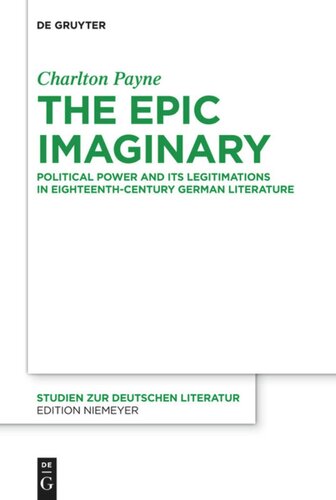

Most ebook files are in PDF format, so you can easily read them using various software such as Foxit Reader or directly on the Google Chrome browser.
Some ebook files are released by publishers in other formats such as .awz, .mobi, .epub, .fb2, etc. You may need to install specific software to read these formats on mobile/PC, such as Calibre.
Please read the tutorial at this link: https://ebookbell.com/faq
We offer FREE conversion to the popular formats you request; however, this may take some time. Therefore, right after payment, please email us, and we will try to provide the service as quickly as possible.
For some exceptional file formats or broken links (if any), please refrain from opening any disputes. Instead, email us first, and we will try to assist within a maximum of 6 hours.
EbookBell Team

4.7
16 reviewsThis study analyzes how the imagination of the epic genre as legitimately legitimating community also unleashes an ambivalence between telling coherent ‑ and hence legitimating ‑ stories of political community and narrating open-ended stories of contingency that might de-legitimate political power. Manifest in eighteenth-century poetics above all in the disjunction between programmatic definitions of the epic and actual experiments with the genre, this ambivalence can also arise within a single epic over the course of its narrative. The present study thus traces how particular eighteenth-century epics explore an originary incompleteness of political power and its narrative legitimations. The first chapter sketches an overview of how eighteenth-century writers construct an imaginary epic genre that is assigned the task of performing the cultural work of legitimating political communities by narrating their allegedly unifying origins and borders. The subsequent chapters, however, explore how the practice of epic storytelling in works by Klopstock, Goethe, Wieland, and, in an epilogue, Brentano enact the disruptive potential of poetic language and narrative to question the legitimations of imaginary political origins and unities.